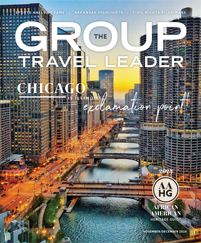Are you delivering what your customers really want from their travel experience? What about what they really need?
Travel has incredible potential to impact people and change lives. But according to recent research data, there’s a gap between the significant experiences travelers are searching for and what the tourism industry often delivers. In this episode of the podcast, Gather and Go host Brian Jewell shares how tourism leaders can tap into the power of travel to create transformational moments for their customers.
His presentation, Untapped: Travel’s Hidden Power to Solve People’s Deepest Problems, was delivered March 21, 2024 at STS Domestic Showcase in Little Rock, Arkansas. We’re sharing the entire talk in this episode. Don’t forget to scroll down for links to the slide deck and key moments from the presentation.
Podcast: Embed
Download The Presentation Slides
Brian’s talk included lots of helpful data. Here’s a copy of the presentation slides with links to underlying research sources.
Key Moments From This Episode
9:40 — What do people want from their travel experiences?
11:45 — Revisiting “The Case Against Travel”
16:14 — Travel’s untapped potential
19:53 — Solving travelers’ problems
27:51 — Solving destinations’ problems
30:53 — Solving society’s problems
41:53 — One question that will change your approach to travel
About the Podcast
Gather and Go with Brian Jewell is a podcast that helps travel organizers and industry professionals plan, promote and lead better trips. Each episode reaches thousands of professional tour operators and travel agents and the volunteer group leaders they work with, as well as destination marketers, museum leaders, church travel leaders and other tourism enthusiasts around the world. Each show includes a featured conversation with a smart and influential travel leader. You’ll also hear travel news, road tips and more. New episodes are released about twice monthly.
You can find Gather and Go wherever your listen to podcasts or subscribe by email.
Have questions, comments or ideas for the show? Send them to us at podcast@grouptravelleader.com.
Thanks for listening!











